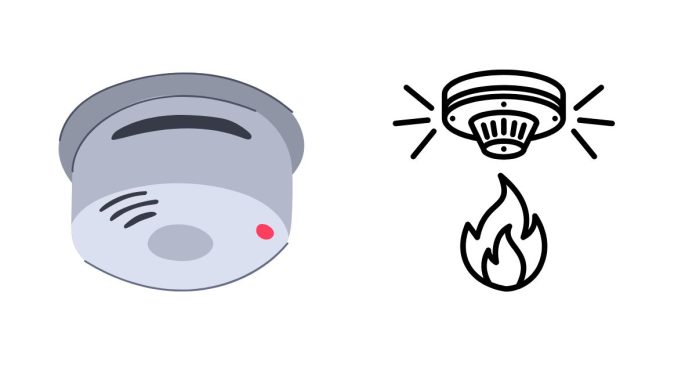If you’ve ever heard your smoke detector emit a single beep every 30 seconds, you’ve probably wondered what’s going on and if you need to take action. This is a common occurrence, but what does it actually mean? Let’s explore the possible reasons behind this beeping and what you should do to address it.
What Does a Single Beep Every 30 Seconds Mean?
A single beep every 30 seconds from your smoke detector typically signals an issue with the battery or a malfunction. Smoke detectors are designed to alert you when something is wrong, and this particular beeping pattern is often a warning to check the device for potential problems.
Here are the most common reasons why your smoke detector might beep at this interval:
1. Low Battery Warning
One of the most common reasons for a smoke detector to beep intermittently is a low battery. When the battery power gets low, the detector will emit a single beep every 30 seconds to let you know it’s time to replace the battery.
Solution: Replace the battery with a fresh one as soon as possible. Most smoke detectors use 9V batteries, but it’s important to check your model for the correct type. After replacing the battery, the beeping should stop.
2. Battery is Installed Incorrectly
If you’ve recently replaced the battery and the beeping persists, it’s possible that the battery is not installed properly. The terminals inside the smoke detector must align correctly with the battery’s connectors.
Solution: Double-check the battery installation to ensure it’s seated properly. If the battery still doesn’t work, try removing it and reinstalling it or using a different battery to see if the issue resolves.
3. Smoke Detector Needs Maintenance
Sometimes, a smoke detector will emit a periodic beep if it needs maintenance, such as being cleaned or inspected. Dust, debris, or insects can sometimes interfere with the sensor, causing it to malfunction.
Solution: Clean your smoke detector using a soft cloth or a vacuum cleaner with a nozzle attachment. Be sure to gently remove any dust or debris that might be blocking the sensors. If cleaning doesn’t resolve the issue, it may be time for an inspection or replacement.
4. End of Life Warning
Most smoke detectors are designed to last around 10 years. If your smoke detector is reaching the end of its life, it may start beeping to alert you that it needs to be replaced.
Solution: Check the manufacture date on your smoke detector. If it’s over 10 years old, you should replace the entire unit. Even if the battery is fine, an aging detector might not function as effectively.
5. Malfunction or Fault
If none of the above solutions stop the beeping, there could be a malfunction within the smoke detector itself. This could be due to a wiring issue (in hardwired models) or a defect in the unit.
Solution: If your smoke detector is still beeping after addressing the battery, cleaning, and ensuring it’s not near its expiration, it may be time to replace the unit or contact a professional to inspect it.
A single beep every 30 seconds from your smoke detector is generally a warning sign that something needs attention, whether it’s a low battery, improper installation, or a need for maintenance. By addressing these issues promptly, you can ensure your smoke detector is functioning properly and keeping your home safe.
Remember, smoke detectors are essential for protecting your family and property, so don’t ignore the beeping—take action right away to fix the problem!


